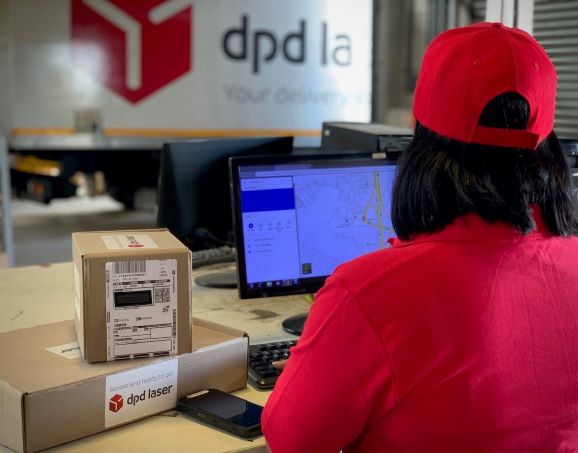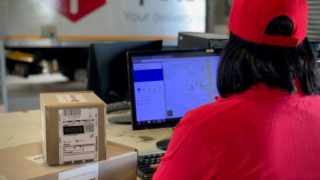Drop in fuel price welcomed – but transport businesses struggle with uncertainty
“So many people are already struggling to live above the breadline; the implications are really serious”
With the courier and delivery industry being one of the fastest growing in South Africa, thanks to boosts in demand arising out of the COVID-19 pandemic and the proliferation of ecommerce platforms, it has been deeply impacted by the steep increases in fuel prices in recent months, with businesses being compelled to pass increased costs on to others in the supply chain.
While August’s drop in fuel price has been welcomed from many corners of society and business, the only constant for the transport industry is the uncertainty of roller-coasting fuel prices that force them to find a precarious balance between nurturing their client relationships and maintaining sustainable businesses.
That’s according to Jason Lombard, CEO of DPD Laser, a South African courier company with 25 branches and around a thousand drivers and vehicle owners across the country.
“While the slight fall in the August fuel price is good news for businesses and consumers, fuel is a fundamental component of a distribution business’s costs, and when there are sustained fuel price increases as there have been during 2022, our underlying cost base shifts significantly,” Lombard explains. “Even with some reprieve now in August, our costs are still significantly higher than they were just six months ago. We now have to engage with clients through the supply chain again, to navigate the price changes, investing time and resources that could be used elsewhere in the business far more efficiently.”
This follows a 57% increase in the price of diesel between April 2021 and now, with more than one-third of that between January and June 2022. Those are increases that impact between 30 to 40% of a courier and delivery business’s operating costs – particularly when it comes to larger trucks.
Lombard points out that very few delivery businesses operate on double-digit profit margins, adding that the recent fuel price increases could be enough to break and close down a business that had been moderately successful before the recent run of increases – if they don’t pass those costs on to their clients.
“This is where it becomes truly difficult, with price increases having a snowball effect on consumers and the economy,” he adds. “Consumers are already bearing the brunt of the fuel price increase in their transport costs, but it will soon start to cause the cost of even the most basic of foodstuffs to increase. In a country where so many people are already struggling to live above the breadline, the implications are really serious.”
“The multiple pressure points of businesses being under the whip to recover the costs of doing business, and consumers buckling under the weight of the cost of living, creates a massively combative environment between the transport (logistics) sector and its customers, whether they’re supermarkets, online shoppers, or everyday commuters,” he says.
DPD Laser has navigated a way around the soaring fuel prices by offering contractual rates to regular clients, with an overlying fuel surcharge that’s updated when the petrol price increases.
“Levying a surcharge in this way means that if and when the fuel price comes down, our customers will benefit from the lowered costs too – and they will hopefully pass that benefit on to their clients as well,” he says.
The South African delivery market is considerably different from its counterparts in Europe, where one delivery driver and their vehicle could easily make 30 – 40 deliveries within one city block, all within a couple of hours – and then do so using an electric vehicle that’s not held hostage by soaring fuel prices.
In South Africa, nearly half of business-to-consumer deliveries are to rural addresses, with drivers having to travel far distances over longer periods to make just one delivery. This geographic spread further exacerbates the cost impacts of continuous fuel prices.
While electric vehicles are on the horizon, they’re still too expensive to buy for business use because of misplaced luxury goods import taxes, along with range anxiety created by a dearth of charging stations. What’s more, electricity is scarce, unreliable, and costly in South Africa, and running a fleet of electric vehicles sustainably is still a long way off.
“Fuel price increases at this rate and pace are only just short of force majeure for all types of transport businesses, and they’ve happened at such a pace and in such a sustained manner that efficiency initiatives run behind the curve,” Lombard explains. “Many clients see the cost of fuel as a supplier-related issue that shouldn’t impact them, but increases of this nature simply cannot be borne by one party in the chain.”
“We need to work together to manage the costs throughout the supply chain and keep one another and end-consumers informed at every point of their journey so that we can all take steps to cushion the blow of the increased costs, as we’re surely not far away from an R30 per litre fuel price.”
Brandstories Disclaimer:
Brandstories is not liable for the contents of the information published on this platform. The information which subscribers publish on this website is for general information purposes only and Brandstories facilitates the ability for viewers and subscribers to access this platform. Subscribers who publish their content on Brandstories are held responsible for their own content. This includes ensuring that it is factually accurate, grammatically correct, free of spelling errors, and does not contain unsavoury content that could result in legal action. In the case of linguistic translations, the onus is on the client to ensure that the translation is accurate. In no event does Brandstories make representations or warranties of any kind, expressed or implied about the completeness, accuracy, reliability, suitability or availability with respect to the information supplied and published. This website includes links to other websites, including third party websites. Brandstories does not recommend, endorse or support any views that are held by subscribers publishing information, and within these links provided. Furthermore, Brandstories does not have control over the nature, contents and availability of information contained on these sites. Any form of reliance readers and consumers may place on information published on Brandstories is strictly at their own risk. Brandstories makes every effort to ensure that the website is up and running smoothly at all times, however Brandstories does not take responsibility for, and will not be held liable for times when the website is temporarily unavailable due to technical glitches that are beyond our control.


